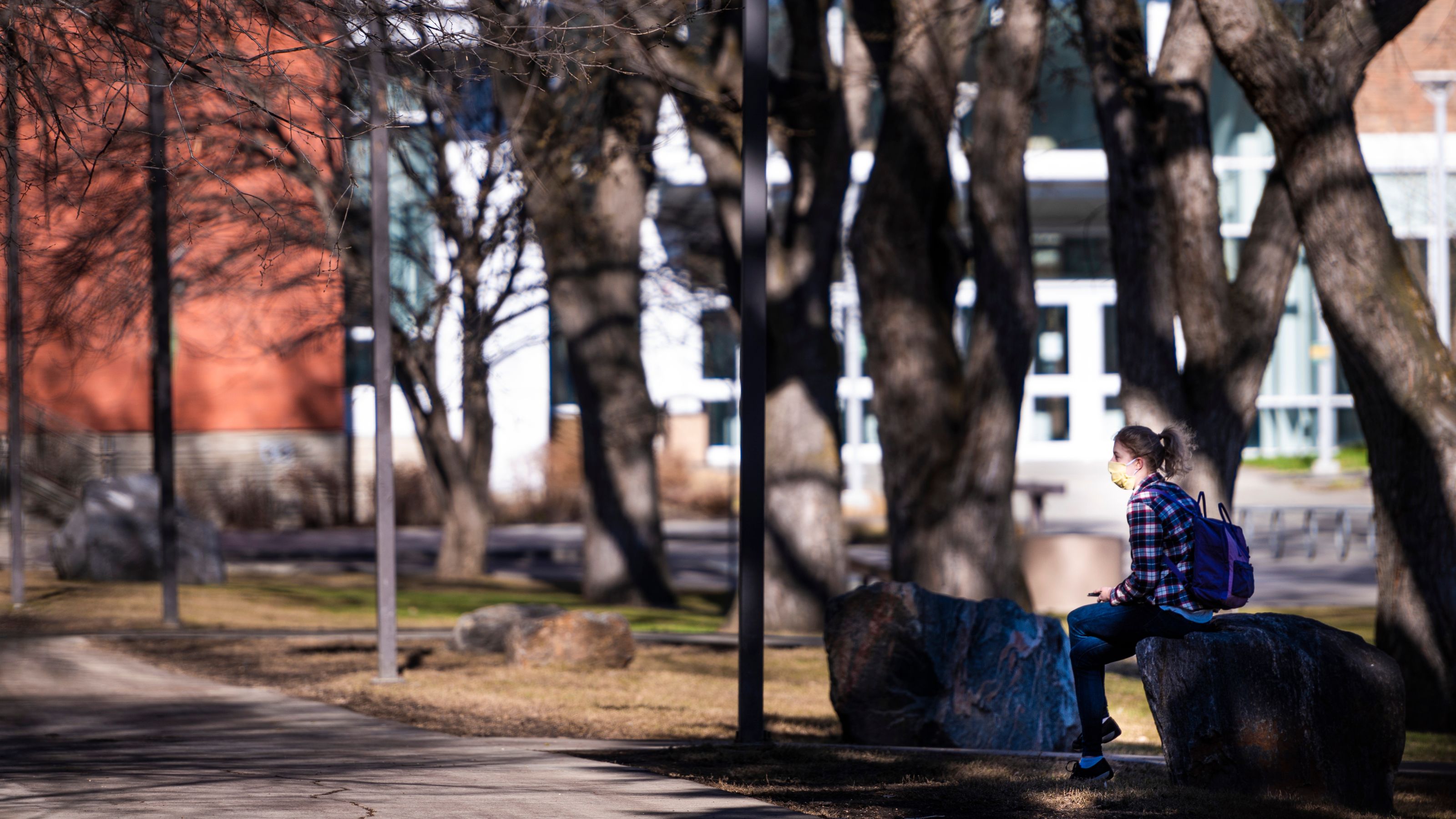While we once might not have given a second thought to showing up to work with the sniffles, a slight cough or other (relatively) mild symptoms, feeling ill and opting to show up to work is not a frivolous matter: it impacts all of us — you, your colleagues and your loved ones. The health and safety of our campus community members matters. And, recognizing that we are all trying to do our best through consecutive transitions and changes is critical.
Ensuring that our campus community remains vibrant, healthy and safe, where all employees contribute to maintaining operations, is everyone's responsibility. Here are some ways we can continue keeping ourselves and others safe this fall.
Boost your protection
Lower your risk of severe illness by staying up-to-date with immunizations. Everyone six months of age and older, including children under five, is now eligible for a COVID-19 vaccine. Those five and older who have received at least two COVID-19 vaccines are eligible for boosters. You can also connect with your healthcare team to discuss other vaccinations, including the flu vaccine to prepare for the upcoming flu season or eligibility for the monkeypox vaccine.
Prioritizing your health helps everyone
Everyone in the U of A community is encouraged to stay home when unwell. If you are working in person, showing up to work with "just a cough" or while feeling "just a little under the weather" isn't a safe option. Likewise, choosing to work remotely as per the Work From Home Program does not lessen your need (or that of your colleagues) to take time off when you’re feeling unwell. Unplugging from your work when you’re feeling unwell benefits you, your colleagues and loved ones.
Letting others know when you are unwell is not an overshare
While you are not required to disclose your medical information or the symptoms you're experiencing, if you are sick, advise your supervisor or team/relevant colleagues about your absence and follow the appropriate steps. All employees have illness days available to them.
Likewise, letting your colleagues or loved ones know you’re feeling unwell, especially if you have come in close contact with them prior to or during your illness, can help others practice safe and healthy behaviours and take the necessary precautionary measures to protect those around them.
Support others with taking care of themselves
All those working and/or studying at the U of A are strongly encouraged to take the necessary time to rest and unplug if they feel unwell. You can support a culture of care by practicing compassion and understanding when a colleague or student indicates they are unwell. COVID-19 symptoms and similarly communicable symptoms are considered acceptable reasons for absences. Resources are available for managing absences.
Not sharing can be an act of caring
Practicing good hygiene habits like giving others space, wiping down surfaces, washing your hands, avoiding sharing food and drinks with others and wearing a mask in crowded indoor areas are great ways to keep you and others healthy and safe.
Masks are strongly encouraged on campus
While masks are not required and a personal decision, mask wearing continues to be strongly encouraged while on campuses — especially in high-traffic and high-capacity areas. (There are some settings, including clinics and the University Health Centre, where masks continue to be required.) Offering yourself and others space free of judgement can go a long way in making sure all university community members feel safe, respected and valued.
Various supportive health and wellbeing resources are available to all U of A employees. Access these resources directly and confidentially depending on your needs.
For additional resources, visit the HealthyU Essentials website.
The University of Alberta is committed to the safety, health and well-being of our faculty, staff and students. Every day, we advance this commitment to safety through the Culture of Care.
